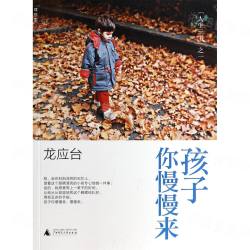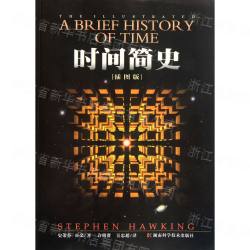-
内容大纲
高质量的教师反馈对提升中国大学生任务表现和口语能力发展具有积极作用。在口语展示任务中,教师反馈的具体内容、功能和策略是什么?学生对教师反馈的投人情况如何?影响教师反馈和学生投入的因素有哪些?本书从心理认知、社会文化和社会建构视角构建理论框架,追踪2名英语教师和6名学生在18周的口语展示任务,通过收集并分析课堂观察、口语展示录像、刺激回忆、半结构式访谈、反思日志等数据,对上述问题进行了定性考察。 -
作者介绍
王博(1989.07-),2018年获澳门大学教育学博士学位,现为山东科技大学外国语学院讲师。主要研究方向:英语课程与教学、外语教师教育、学术读写能力发展。合著出版《外语教学研究中的质性分析》专著1部,发表SSCI 等期刊研究论文12篇。主持山东省人文社会科学课题1项、青岛市社会科学规划项目1项,山东省教育科学“十四五”规划课题,并参与省部级等项目4项。 -
目录
Chapter 1 Introduction
1.1 Background of the Study
1.2 Purpose of the Study
1.3 Research Questions
1.4 Definition of Key Terms
1.5 Methodological Considerations
1.6 Outline of the Study
Chapter 2 Literature Review
2.1 Task-Based Language Teaching
2.1.1 Definitions of Task
2.1.2 Procedure and Principles for Task Design
2.1.3 Task-Based Teaching Frameworks
2.1.4 A Task-Based Framework of Oral Presentations
2.2 A Multi-Dimensional Theoretical Perspective on Teacher Feedback
2.2.1 Defining Teacher Feedback
2.2.2 A Brief History of Teacher Feedback Research
2.2.3 Teacher Feedback: Cognitive Perspective
2.2.4 Teacher Feedback: Sociocognitive Perspective
2.2.5 Teacher Feedback: Social Constructive Perspective
2.3 Empirical Studies on Teacher Feedback in L2 Education
2.3.1 Teacher Feedback Practices: Focus, Function, and Strategies
2.3.1.1 The Focus of Teacher Feedback
2.3.1.2 The Function of Teacher Feedback
2.3.1.3 The Strategies of Teacher Feedback
2.3.2 Teacher Cognitions about Feedback Provision
2.3.3 Student Perspectives on Teacher Feedback
2.3.4 Effects of Teacher Feedback
2.3.5 Student Engagement with Teacher Feedback
2.3.6 Context and Teacher Feedback
2.3.7 Teacher Feedback on Oral Tasks
2.4 Research Gaps
2.5 A Tentative Conceptual Framework
2.6 Next Step for Teacher Feedback Research and Practice
Chapter 3 Methodology
3.1 Qualitative Case Study
3.1.1 Qualitative Research Paradigm
3.1.2 Case Study Approach
3.2 Research Context
3.2.1 Chinese Cultures of Learning
3.2.2 The Chinese EFL Context
3.2.3 The Institutional and Instructional Contexts
3.3 Participants of the Study
3.3.1 Selection of Teacher Participants
3.3.2 Selection of Student Participants
3.4 The Pilot Study
3.5 Data Collection
3.5.1 Data Sources
3.5.1.1 Classroom Observations
3.5.1.2 Video Recordings
3.5.1.3 Semi-Structured Interviews
3.5.1.4 Stimulated Recalls
3.5.1.5 Reflective Accounts
3.5.1.6 Field Notes
3.5.1.7 Documents
3.5.2 The Procedure of Data Collection
3.5.3 Data Triangulation
3.6 Data Analysis
3.6.1 Analysis of Teacher Feedback
3.6.2 Analysis of Semi-Structured Interviews. Stimulated Recalls, Reflective Accounts, and Field Notes
3.7 Ensuring Trustworthiness
3.8 Ethical Issues
Chapter 4 Teacher Feedback Practices in Oral Presentations
4.1 Amelia's Feedback Practices
4.1.1 Feedback Focus: Comprehensive Feedback
4.1.2 Feedback Function: Praise-Criticism and Criticism-Suggestion
4.1.3 Feedback Strategies: Input-Providing CF, Use of LI, and Nonverbal Feedback
4.2 Gwen's Feedback Practices
4.2.1 Feedback Focus: Language-Focused Feedback
4.2.2 Feedback Function: Praise-Criticism-Suggestion
4.2.3 Feedback Strategies: Output-Prompting CF, Use of L1, and Peer/Self-Feedback
4.3 Summary of Chapter
Chapter 5 Student Engagement with Teacher Feedback on Oral Presentations
5.1 Engagement with Teacher Feedback: Student Cases from Amelia's Class
5.1.1 Deng: A High-Proficiency Student's Engagement with Teacher Feedback
5.1.1.1 Deng's Background
5.1.1.2 Deng's Engagement with Teacher Feedback
5.1.2 Wang: An Intermediate-Proficiency Student's Engagement with Teacher Feedback
5.1.2.1 Wang's Background inese EFL Teachers' Feedback on Task-Based Oral Presentations
5.1.2.2 Wang's Engagement with Teacher Feedback
5.1.3 Li: A Lower-Proficiency Student's Engagement with Teacher Feedback
5.1.3.1 Li's Background
5.1.3.2 Li's Engagement with Teacher Feedback
5.2 Engagement with Teacher Feedback: Student Cases from Gwen's Class
5.2.1 Wu: A High-Proficiency Student's Engagement with Teacher Feedback
5.2.1.1 Wu's Background
5.2.1.2 Wu's Engagement with Teacher Feedback
5.2.2 Chen: An Intermediate-Proficiency Student's Engagement with Teacher Feedback
5.2.2.1 Chen's Background
5.2.2.2 Chen's Engagement with Teacher Feedback
5.2.3 Han: A Lower-Proficiency Student's Engagement with Teacher Feedback
5.2.3.1 Han's Background
5.2.3.2 Han's Engagement with Teacher Feedback
5.3 Factors Influencing Student Engagement with Teacher Feedback
5.3.1 Learner Individualization
5.3.2 Characteristics of Teacher Feedback Practices
5.3.3 Teacher-Stude
6.2 Student Engagement with Teacher Feedback on Oral Presentations
6.2.1 Interrelatedness of Affective, Cognitive, and Behavioral Engagement
6.2.2 Multiple Factors Influencing Student Engagement with Teacher Feedback
6.2.3 Learner Agency and Engagement with Teacher Feedback
6.3 An Exploratory Conceptual Framework of Teacher Feedback on Task-Based Oral Presentation Performance
6.4 Summary of Chapter
Chapter 7 Conclusion
7.1 Summary of Main Research Findings
7.2 Significance of the Study
7.3 Limitations of the Study
7.4 Pedagogical Implications
7.5 Suggestions for Future Research
7.6 Summary of Chapter
Appendices
Appendix A Informed Consent Form for Teacher Participants
Appendix B Informed Consent Form for Student Participants
Appendix C Sample Verbatim Transcripts of Student Speech in Oral Presentations
Appendix D Sample Verbatim Transcripts of Teacher Oral Feedback
Appendix E Teacher Semi-Structured Interview Guide
Appendix F Sample Verbatim Transcripts of Teacher Semi-Structured Interview
Appendix G Student Semi-Structured Interview Guide
Appendix H Sample Verbatim Transcripts of Student Semi-Structured Interview
Appendix I Prompts of Stimulated Recall with Teachers and Students
Appendix J Sample Verbatim Transcripts of Stimulated Recall with Teacher
Appendix K Sample Verbatim Transcripts of Stimulated Recall with Student
Appendix L Prompt of Reflective Account and Sample
Appendix M Scripts of Sample Ready-Made PowerPoint Slides Used to Teach Oral Presentations
Appendix N Course Information for An Introduction to Intercultural Communication
Appendix O Course Information for Communicative English (II)
Appendix P Abbreviations
Appendix Q Author's Scholarship in Relation to This Book
References
同类热销排行榜
- 目送/人生三书
-
 21世纪的《背影》 + 感人至深的“生死笔记”+ 龙应台亲手摄影 + 跨三代共读的人生之书!
华人世界率性犀利的一枝笔,龙应台独家...
21世纪的《背影》 + 感人至深的“生死笔记”+ 龙应台亲手摄影 + 跨三代共读的人生之书!
华人世界率性犀利的一枝笔,龙应台独家...
- 顾城的诗(金版)(精)/蓝星诗库
- 人类群星闪耀时(插图本)/译林名著精选
- 牛津高阶英汉双解词典(附光盘第8版)(精)
- 文化苦旅(新版)
- 摆渡人
- 解忧杂货店(精)
- 骆驼祥子
- 曾国藩(又笨又慢平天下)
- 查令十字街84号(珍藏版)(精)
推荐书目
-

孩子你慢慢来/人生三书 华人世界率性犀利的一枝笔,龙应台独家授权《孩子你慢慢来》20周年经典新版。她的《...
-

时间简史(插图版) 相对论、黑洞、弯曲空间……这些词给我们的感觉是艰深、晦涩、难以理解而且与我们的...
-

本质(精) 改革开放40年,恰如一部四部曲的年代大戏。技术突变、产品迭代、产业升级、资本对接...

 [
[
